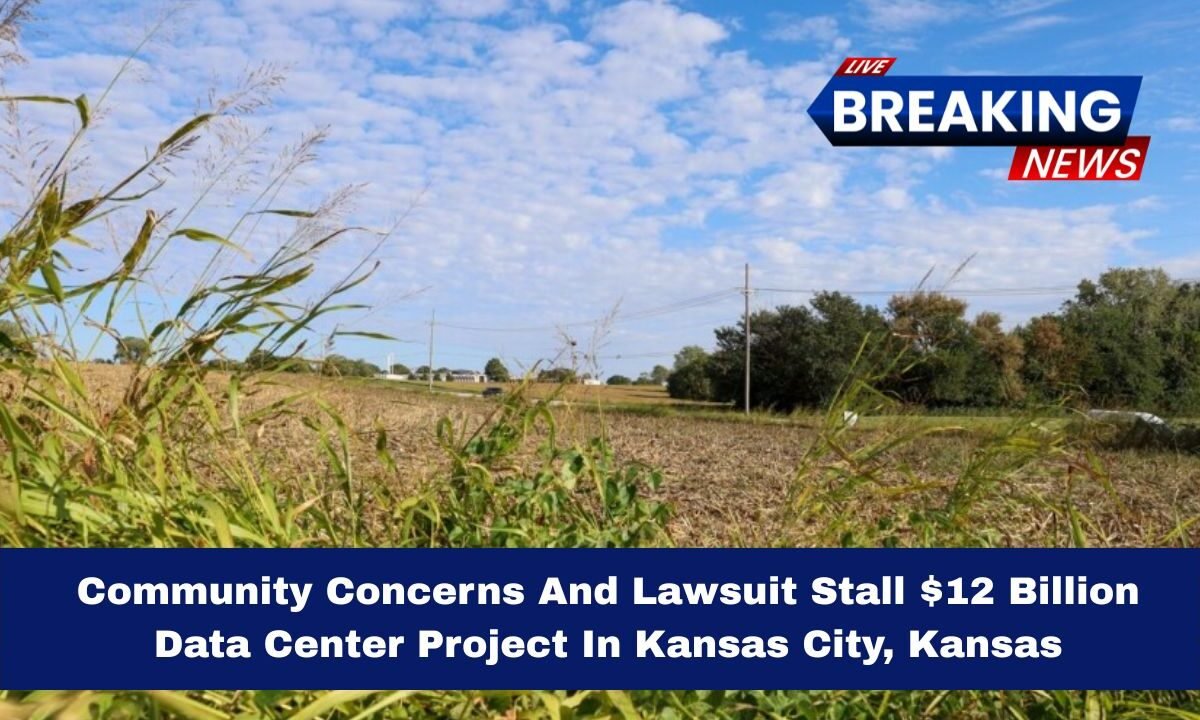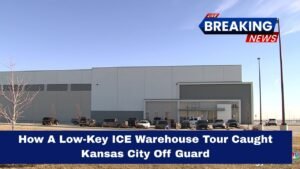A massive $12 billion data-center development planned for Kansas City, Kansas has hit a standstill following lawsuits and community protests.
The project, led by Red Wolf DCD Properties, was initially approved by the Unified Government of Wyandotte County but is now stalled amid legal and environmental disputes.
Project Overview
The proposed facility would be one of the largest technology infrastructure projects in the Midwest, comprising six large buildings spanning about 1.8 million sq ft.
The site covers multiple parcels on both sides of Parallel Parkway in western Wyandotte County.
Key Facts & Figures
| Item | Detail |
|---|---|
| Project value | $12 billion |
| Developer | Red Wolf DCD Properties |
| Location | North and south sides of Parallel Parkway, Wyandotte County, Kansas |
| Buildings proposed | 6 data-center buildings |
| Total area | 1.8 million sq ft |
| Zoning status | Initially approved in May 2025; now challenged by petition and lawsuit |
| Jobs projected | 40–60 initial positions; potential for up to 100 technical roles (~$100,000/year) |
| Tax revenue | Over $2 million per building per year when completed |
What Caused the Delay?
Zoning Dispute
Although the project received zoning approval in May, a protest petition triggered a requirement for a supermajority vote for the north parcel. On July 31, the planning commission’s 7-3 vote failed to meet that threshold.
For the south parcel, enough signatories later withdrew to remove the supermajority requirement, allowing limited progress—but the full project remains paused until the north parcel is resolved.
Legal Action
A lawsuit filed by Neal Palmer and Haskell Farms LLC claims that the zoning process violated municipal procedures and lacked sufficient environmental review.
In October, a district judge denied the Unified Government’s motion to dismiss, ensuring that the case will proceed in court.
Community & Environmental Concerns
Local residents and advocacy groups have raised multiple concerns:
- Transparency: The end-user tenant of the data center remains undisclosed. Residents worry about who will ultimately operate the facility and its long-term commitments.
- Energy consumption: Critics say the site could double Wyandotte County’s power usage, possibly increasing utility costs for residents.
- Water usage: While developers suggest a closed-loop cooling system to reduce water draw, skeptics remain concerned about strain on local resources.
- Speculative development: Opponents fear a “real-estate flip” scenario if no tenant materializes, leaving the community with idle infrastructure.
Environmental groups, including the local Sierra Club chapter, are calling for full impact studies on energy, water, and carbon emissions before any construction begins.
Economic & Infrastructure Implications
Despite the controversy, supporters cite potential benefits for the region:
- Tax Revenue: Each building could generate over $2 million annually, supporting local schools and public services.
- High-wage jobs: The data center is expected to create up to 100 technical positions with average salaries around $100,000 per year.
- Infrastructure upgrades: Plans include modernizing power substations and expanding transmission lines to meet the facility’s high energy demands.
However, some argue that the scale of public investment and utility expansion should only proceed once the project’s sustainability is proven.
What Happens Next?
The next phase depends on the outcome of the ongoing lawsuit and the zoning reconsideration for the north parcel. Until then, construction cannot begin.
Developers and local officials will likely need to address community concerns through additional hearings and impact assessments.
The case is being watched nationally, as other U.S. regions evaluate the environmental and economic trade-offs of hyperscale data-center developments.
The $12 billion Kansas City data-center project highlights the tension between economic growth and environmental responsibility.
While it promises jobs, tax revenue and infrastructure investment, it also raises serious questions about transparency and sustainability.
The final court decision and public response will shape not only the future of this project but the direction of hyperscale infrastructure development across the United States.




